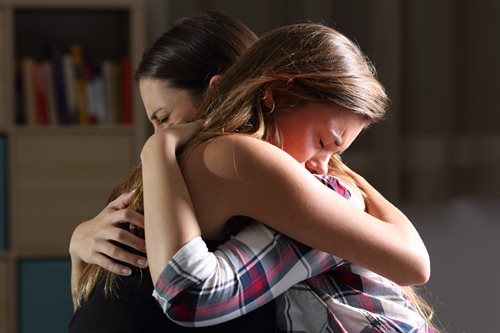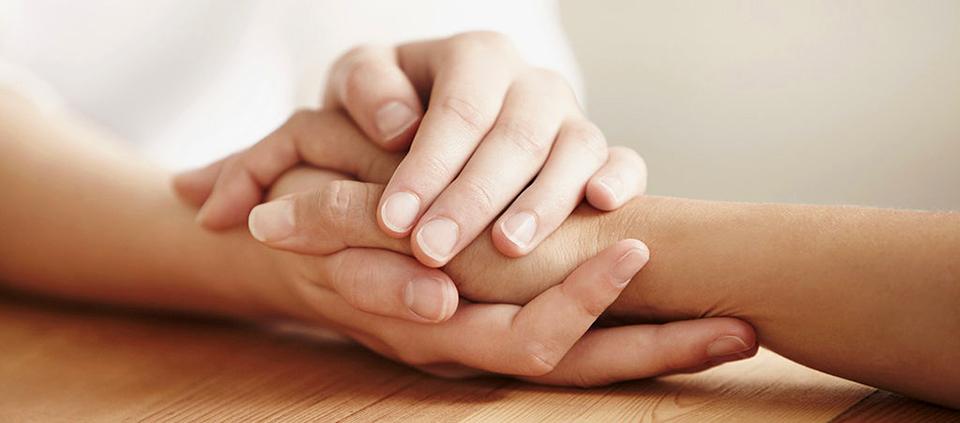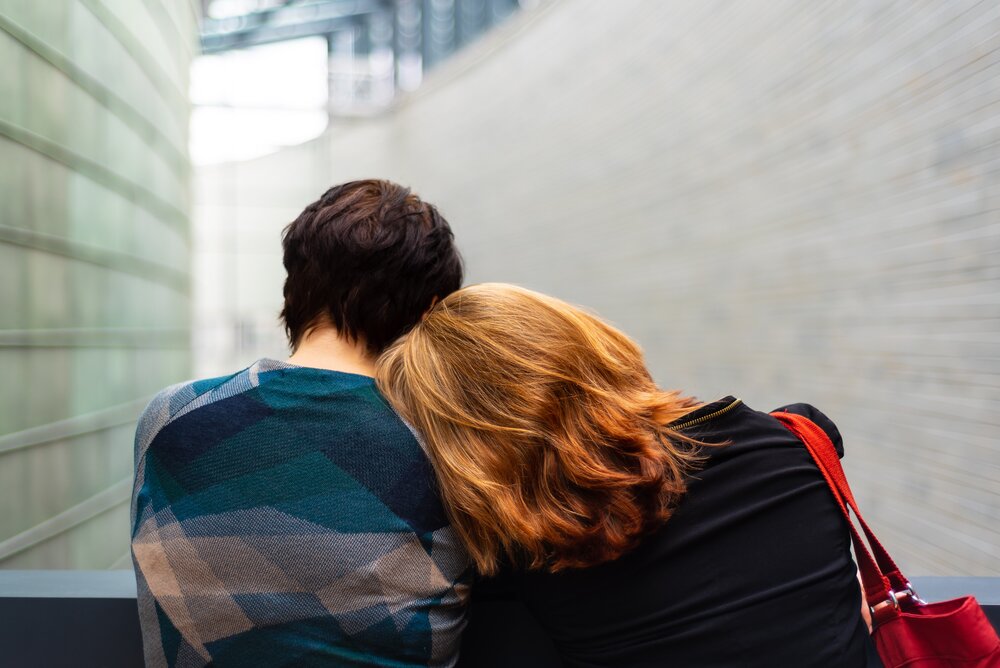Bereavement
If you have experienced the death of someone who was important to you, you might be finding it difficult to adjust to the changes happening in your life right now. Grief can shake everything up, your beliefs, your routines, and even your sense of normality. Bereavement is the time we spend adjusting to our loss. There is no right or wrong way to feel during bereavement time, everyone copes in their own way.
Grief, although normal, can manifest in unexpected ways. Some people get angry, some people withdraw into themselves and some people become completely numb. Sometimes, grief can trigger mental health conditions, like depression.
Talking about the loss often allows a person to adjust to their new life with all its changes good and bad. Keeping things bottled up or denying the sadness could prolong the pain. Any loss has to be acknowledged for us to move forward. Counselling aims to help people find a place for their loss so they can carry on with life and eventually find acceptance.
What is bereavement?
When a loved one suddenly leaves your life, it’s not a case of taking time out to recover. Recovery suggests that you will emerge exactly the same as you were before. In reality, all of your experiences shape the person you are, and experiencing the death of someone you care about often has the biggest impact.
Bereavement is accepting what happened, learning to adjust to life without that person and finding a place to keep their memory alive while you try to get along as best you can.
The importance of grieving
Grieving is an important part of bereavement. Grieving involves rituals like funerals, wakes and anniversary celebrations, which help to add structure to an otherwise chaotic and confusing time.
Grieving allows us to say goodbye. Seeing the body, watching the burial and as hard as it is, sometimes we need to see evidence that a person really has died before we can truly enter into the grieving process.
The stages of bereavement
During bereavement, it is important to find ways to mourn our loss and express our grief. This can be a confusing time involving a lot of powerful emotions. These emotions can grow, fade and shift as we move across the different stages of bereavement.
Not everyone experiences the same stages of bereavement at the same time or in the same order, though most people generally go through the following four stages at some point:
- accepting that your loss really happened
- experiencing the pain that comes with grief
- trying to adjust to life without the person who died
- putting less energy into your grief, finding a new place to put it and moving on
Most people go through all of these stages, but not everyone moves between them smoothly. Sometimes, people get stuck on one stage and find it difficult to move on.

Bereavement counselling
Bereavement counselling is designed to help people move through the stages of bereavement and learn how to cope with the death of a loved one. Specifically, counselling for grief and bereavement can:
- offer an understanding of the bereavement process
- explore areas that could potentially prevent you from moving on
- help resolve areas of conflict still remaining
- help you to adjust to a new sense of self
- address possible issues of depression or suicidal thoughts
You will probably never stop missing the person you lost, but with enough time and the right support, a new life can be pieced together and purpose can be reclaimed.
Counselling aims to get you to the point where you can function normally, however long it takes.
Coping with grief
Many people compare their grief to waves rolling onto a beach. Sometimes those waves are calm and gentle, and sometimes they are so big and powerful that they knock you off your feet completely. Sometimes, the wave of grief can be so powerful that it leads to:
- not wanting or feeling able to get out of bed
- neglecting yourself – not taking care of your hygiene or appearance
- not eating properly
- the feeling that you can’t carry on living without the person you’ve lost
- not feeling able to go to work
- taking your feelings out on other people
All of these reactions are normal parts of bereavement – unless they go on for a very long time. If you feel like you are no longer coping with grief very well or are recognising the following behaviours, you may need some extra help:
- you are beginning to drink a lot
- you are tempted to or starting to take illegal drugs
- you are having suicidal thoughts
- you are acting recklessly
- you are starting to behave violently

How to tell if grief has become depression
Unlike depression, grief is not considered a mental health condition. Sorrow, anger, confusion and emptiness are natural reactions to death. However, when these low feelings last for a very long time, it may be worth seeking additional support. Of course, there is no normal length of time for bereavement.
Loss stays under the surface of our lives and continues to permeate long after it first happened. Sometimes all it takes is a certain date, a place, or a song, for all of that grief to come surging back.
So how do you know if grief has become depression? Grief and depression share a number of symptoms, including sadness, insomnia and change in eating habits.
One of the main differences between grief and depression, however, is that grief comes in waves while depression is like a cloud that hangs over everything. Sometimes, a grieving person is able to forget their sadness for certain lengths of time – perhaps when concentrating on something, perhaps when surrounded by people who make them feel happy. Grief is often triggered by something – a smell, a sudden memory – while depression is pervasive, cutting through everything.
Signs that grief has turned into depression include:
- feelings of guilt unrelated to your recent loss
- a feeling that you are worthless
- feeling sluggish, drained and confused
- difficulty carrying out everyday tasks
If you think you, or someone close to you, is suffering from depression, it is important to find support as soon as possible.
Pet bereavement

As with any bereavement, the death of a pet can be a devastating loss. To some, the pet may have become a member of the family; a companion, a friend. And, in this case, it’s normal to have the same reaction as you would with the death of a person, such as feelings of shock, anger, pain or grief.
It can sometimes be hard for others to recognise the extent to which the loss of a dog, cat or another beloved pet may affect someone. But, it’s important for you to process your feelings and allow yourself to grieve – there is no right or wrong way to feel.
Give yourself time to grieve and remember your pet in whichever way helps. You may benefit from writing your memories down, looking at photos or watching videos of your pet. It’s also helpful to have someone to talk to who understands how you’re feeling and what the loss of your pet has meant to you. This is something that a counsellor can help with.
Suicide grief

All loss is devastating. However, grief after suicide can be a particularly complex process. Family and friends left behind when someone dies by suicide often experience confusing feelings. Self-directed anger and guilt are natural reactions. It’s easy to start blaming yourself and wondering if you could have done something to help. It’s also natural to feel angry at the person themselves, asking why didn’t they tell you how they were feeling?
While we will all process grief in different ways, there are typically thought to be three common stages of grief after suicide.
Numbness or shock
At first, you might feel like you’ve stepped into a slightly different dimension. Everything will feel different and it’s possible that you’ll even want to distance yourself from others to avoid facing what’s happened.
Disorganisation
Eventually, you will come to a point where you’ll be ready to address what’s happened. You might feel lonely and deeply sad at this point. People often have trouble eating, sleeping and functioning normally. It’s during this stage that people tend to go over the days leading up to their loved one’s suicide, agonising over what they could have done and why it happened.
Reorganisation
Over time the initial shock and horror of the situation will begin to fade as your loss becomes a part of your life. You will begin to get back into the day-to-day swing of things and soon you will be able to focus on other things in your life.
Whatever the circumstances, know that one day, it is possible for you to find happiness again. By creating a place to keep the person you lost, and finding ways to remember them (like anniversary celebrations, or leaving flowers at a memorial site), you should be able to preserve their memory and honour the impact they had on your life, without letting their absence obscure your own future. With time, pain does settle.